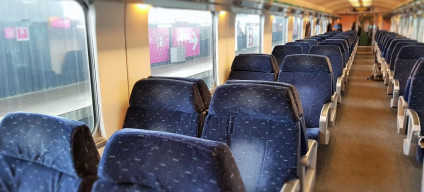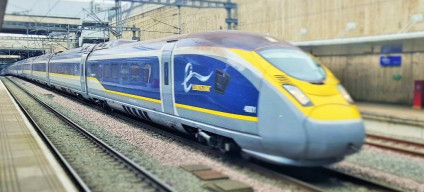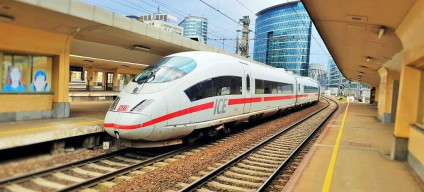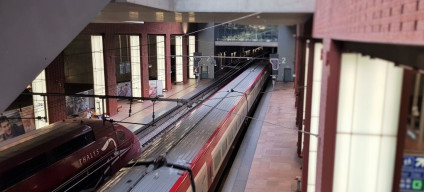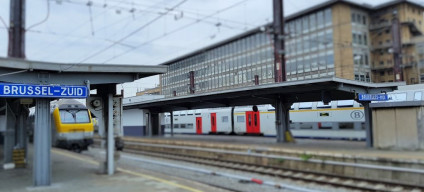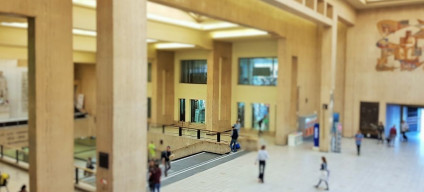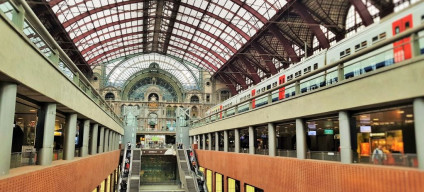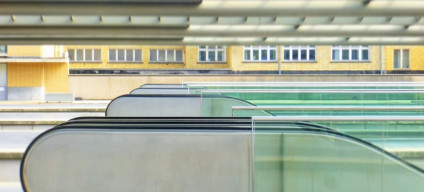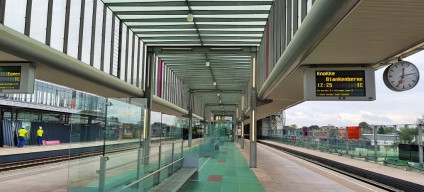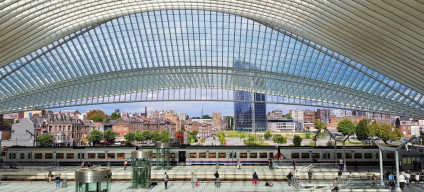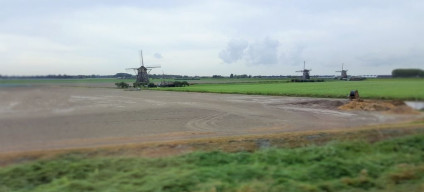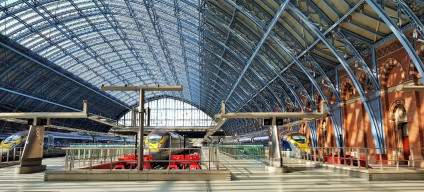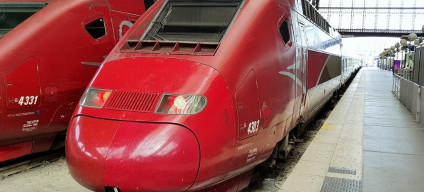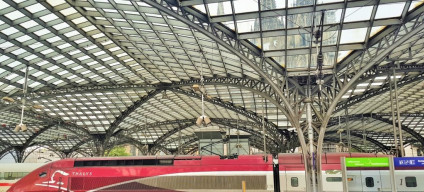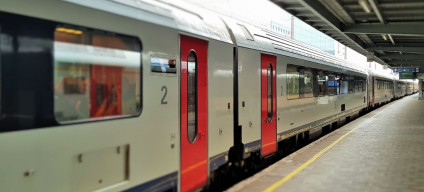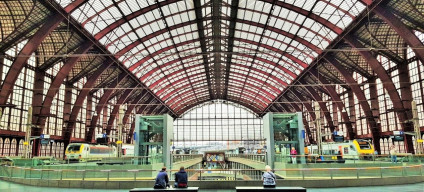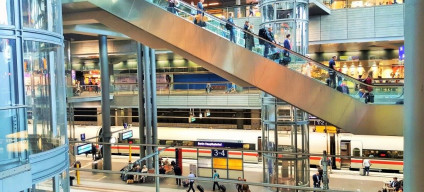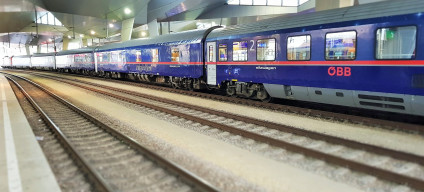Related Content
Content
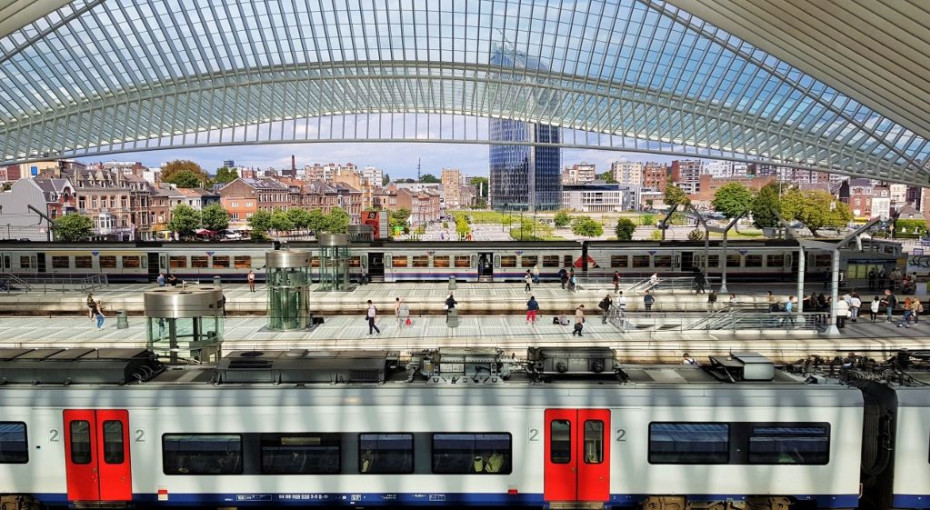
Belgium by train
Welcome to the guide on how to save money, time and confusion when travelling in and from/to Belgium by train.
Share
Introducing Belgian train travel:
When compared to most of the larger countries in Europe, travelling around Belgium by train is wonderfully simple.
Which is convenient as what Belgium lacks in terms of scenic journeys, it more than makes up for with a plethora of must see towns that can be reached on short and easy trips by train.
And because when travelling within Belgium, tickets cost the same price when booking last minute at the station as they do online, you can be spontaneous and head wherever inspires you.
Belgian trains may not be the most stylish, but they’re more than adequate for the relatively short distances involved
Or if you would like help with planning a train journey within or to/from Belgium or want to add some Belgian destinations to a European train travel itinerary, take a look at ShowMeTheJourney's new Concierge Service.
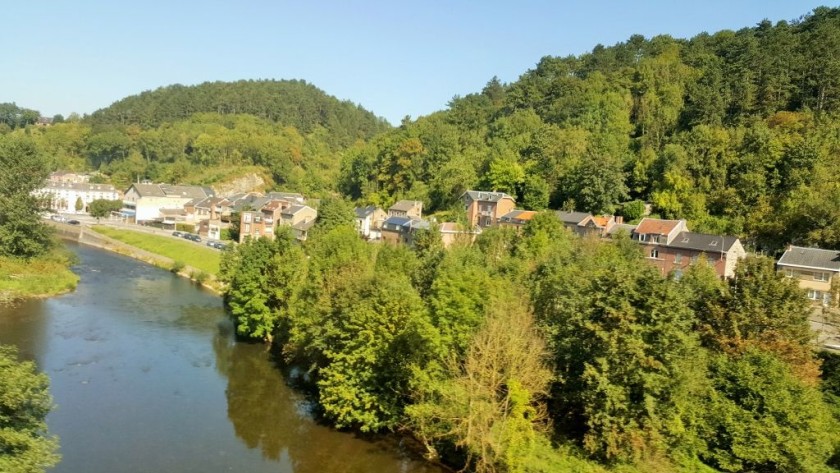
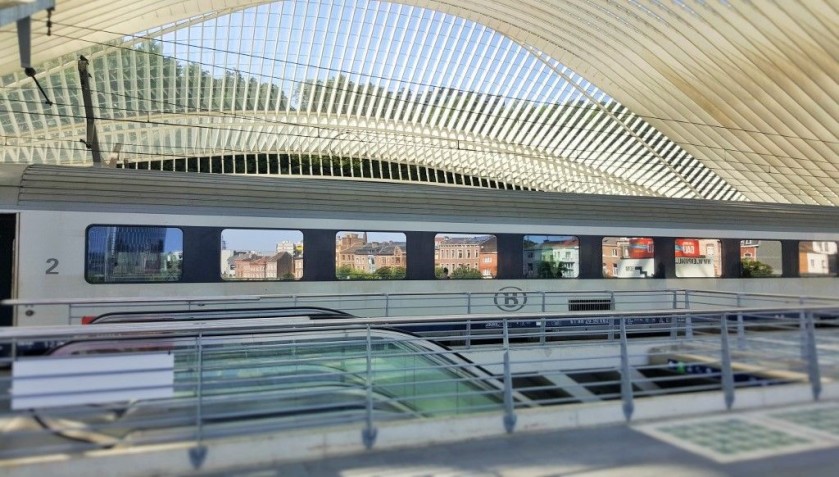
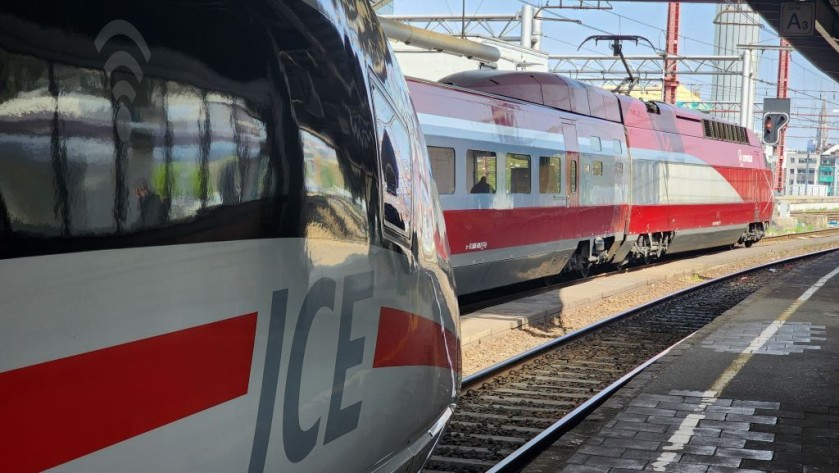
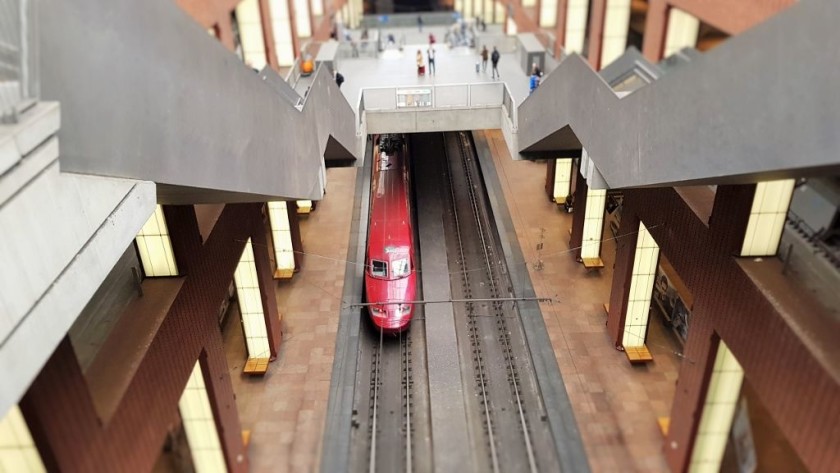
Train ticket summary:
The ten things which are particularly worth knowing about Belgian train tickets:
1. There is no need to book tickets for domestic journeys solely within Belgium online to save money, they will cost the same price if booked at the station.
2.. The ticket machines at the stations are fairly easy to use, so you can avoid having to queue at a ticket counter.
3,. Reservations are not available on NMBS/SNCB's national train services that operate wholly in Belgium.
So seats aren’t guaranteed, hence the advice to avoid travelling into big cities in the morning peak and from big cities during the evening rush.
4.. Each adult ticket enables up to 4 accompanied children age under 12 to travel for free in both 1st class and 2nd class; you will need to be able to provide proof of the age of the children on request.
5.. Children aged 12 and over have to travel at the adult rates.
6.. The national rail operator, NMBS/SNCB, has recently introduced a simplified price/ fare system for national journeys, with universal fare policies regardless of distance - Hence most previous specific tickets, offers and passes that enabled cheaper travel have been discontinued.
The logic being, is that anyone can now save money regardless, particularly as the prices of long-distance journeys has been reduced by 20% compared to what was being charged previously.
7. Those aged 26 and under, or 65 and over receive a 40% discount on any journey regardless of date, time and distance.
8. For everybody else is cheaper to travel on a weekend, there is now a blanket discount of 30% for any national journeyon a Saturday / Sunday compared to the Monday to Friday rate, no matter the distance and who will be travelling.
9. The previous system of discount cards and passes has in effect been replaced by a system called 'Train +'. In effect it is a Railcard which can be used to obtain discounts when booking at the station or online.
When visiting Belgium the simplest thing to do is purchase it at a station ticket counter or machine and it only costs €6 or €4 for a month - the cheaper rate applies to those aged 26 and under, or 65 and over.
You don't need to travel far for Train + to become value for money - more info here.
10. Booking tickets for travel by most of the international train services from/to Belgium is a different end to end experience, in comparison to booking tickets for journeys solely within Belgium.
Reservations are compulsory on some of the high speed trains from and to Belgium and limited numbers of discounted tickets will be made available on most routes.
Hence the existence of B-Europe; a dedicated online booking service for the international train services from and to Belgium.
Detailed train ticket guide:
Travelling on Belgian trains:
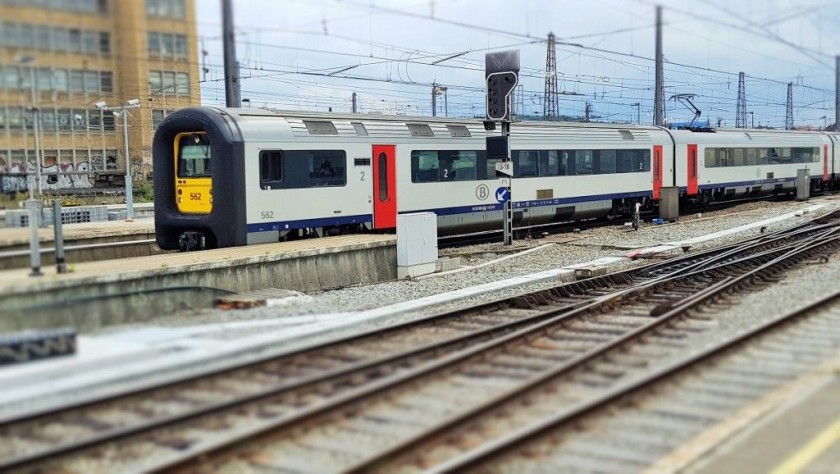
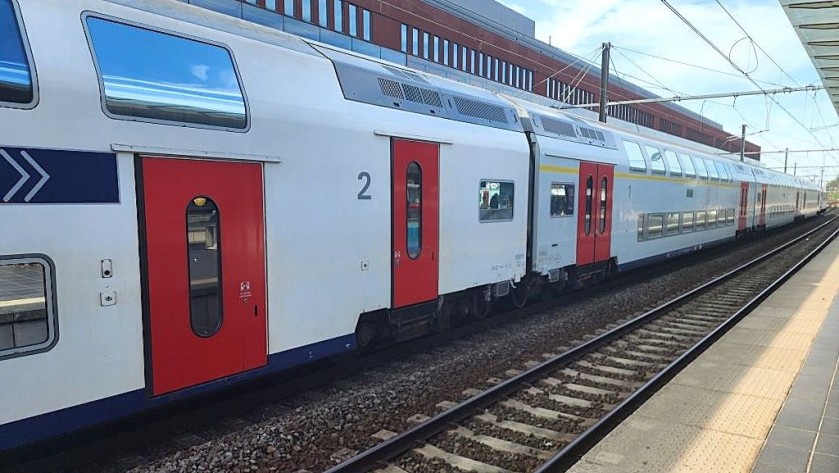
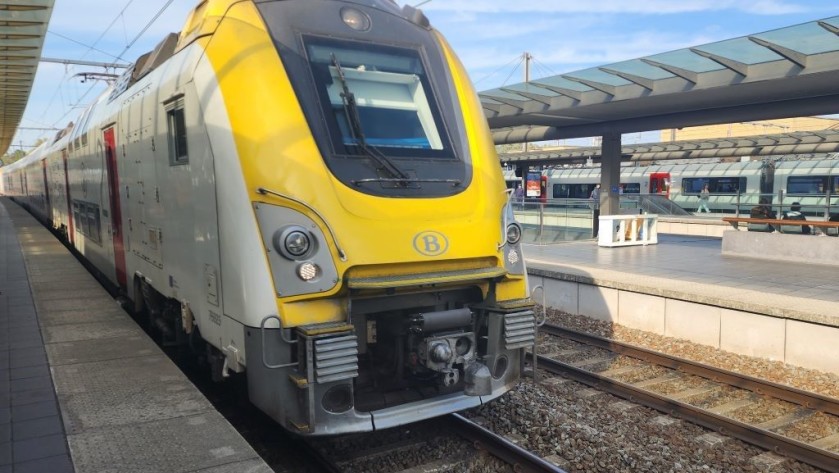
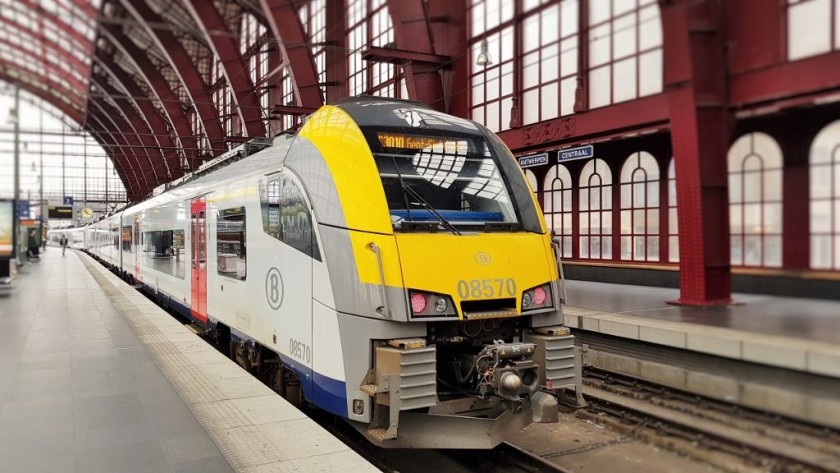
Seven things that are good to know:
1. Seats can’t be reserved on national trains operated by SNCB (the national rail operator in Belgium) , which includes virtually all train services; so it’s a good idea to avoid travelling at peak business hours.
2. Wi-fi also isn't generally available, but don't panic as very few journeys take more than 90 mins.
3. National train services tend to operate to a fixed timetable throughout the day; meaning that departures are at the same minutes past every hour.
However, they operate to different timetables on Sat/Sun compared to the Mon-Fri timetable.
On Mon-Friday there are a minimum of two trains per hour on the most popular routes, with a minimum of 3 x trains hour operate between Bruxelles/Brussels and Antwerpen/Brugge/Gent and Liege.
Virtually all other services operate at least hourly.
Trains generally operate less frequently at weekends, but the express IC trains still operate at a minimum of hourly intervals on all of their routes.
4. It isn't possible to make journeys between Belgian cities on the international high speed trains.
So you can't travel between Bruxelles/Brussels and Antwerpen on Thalys trains, or between Bruxelles/Brussels and Liege by Thalys or ICE trains.
5. Catering facilities aren’t available on train journeys within Belgium.
6. A yellow band above the windows indicates 1st class coaches/seats.
7. Folded bikes can be taken on trains free of charge, but bike tickets that cost €5, need to be purchased before taking NON-folding bikes on any train.
Day bike passes are available if you will be making multiple train journeys with your bike in a single day.
Detailed train guides
Click on the buttons below to access info such as on board facilities, and what to look out for when boarding and travelling with luggage/bikes.
Using the main stations in Belgium:
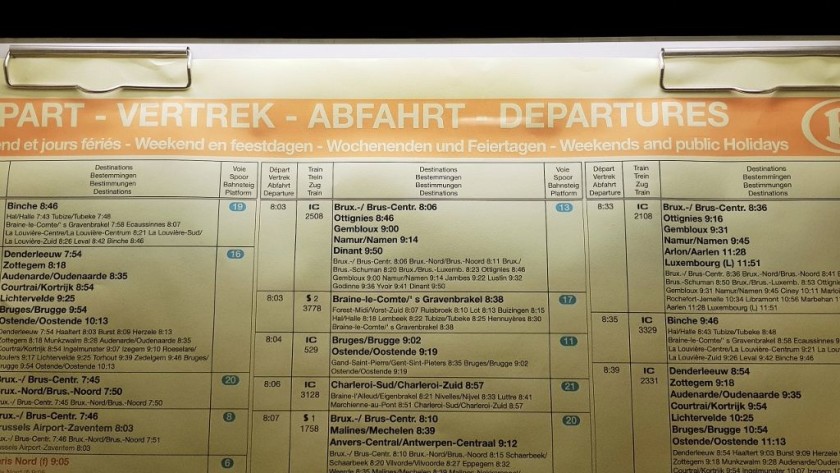
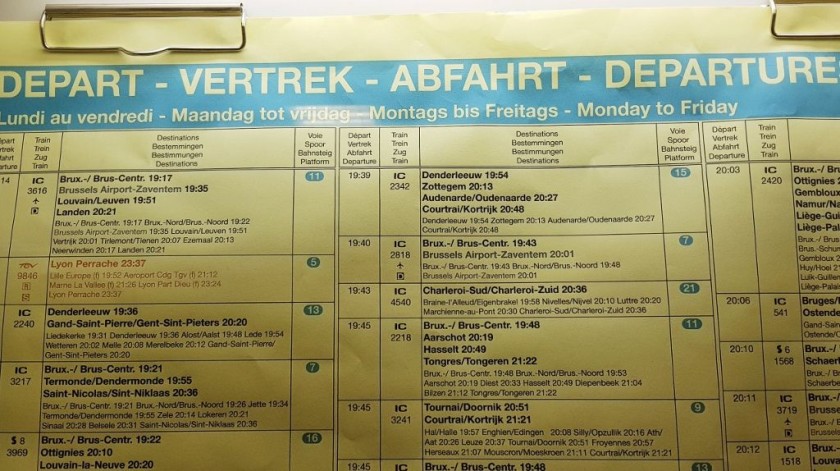
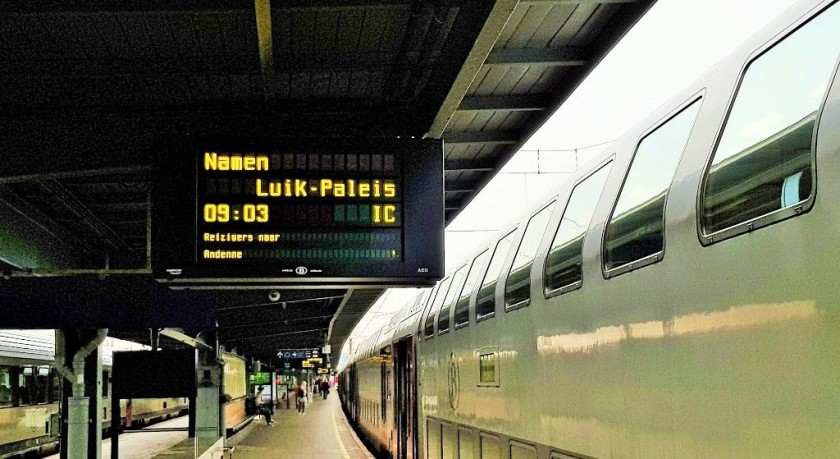
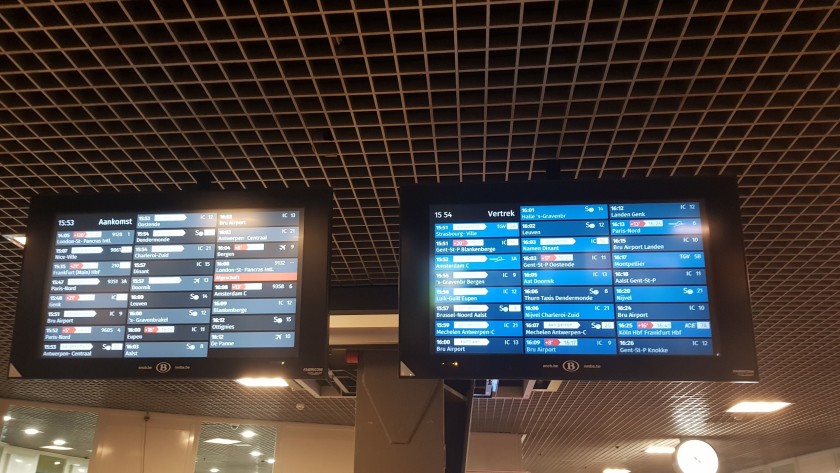
Nine things that are good to know:
1. What can be confusing is that because Belgium is a multi-lingual country, different names of towns and cities are used on the electronic departure information at stations; particularly on the platforms.
The electronic departure information switches between Flemish (French) and Dutch; so be patient if you can't initially see your destination listed.
For example you may see 'Liuk' on a departure indicator, but the train will be heading to/calling at Liege.
The particularly confusing dual namings are:
Antwerpen = Anvers
Liege = Luik
Lille = Rijsel
Louvain = Leuven
Kortijk = Courtrai
Namur = Namen
Mons = Bergen
Gent = Gand
Ypres = Ieper (capital 'I' not 'L')
2. The electronic departure displays only list the final destination of the train and one or two of it's main calling points; they don't list all stations.
So if you can't see your destination listed, check the paper departure sheets.
The sheets with blue headers are for Mon-Fri and those with orange headers are used for departures on Sat/Sun, so be careful not to confuse the two.
3. These paper sheets can be particularly useful when changing trains.
Don’t leave the platform you have just arrived at until you have checked the departure details of your connecting train - you might be able to remain where you are.
4. For international trains, the train numbers are shown on the main electronic departure displays and paper departure sheets.
Which can be useful when you have tickets/reservations for international trains, as the train number will be printed on your ticket(s).
5. The electronic indicators on each specific platform will only show the details of the next departure; and your train many not be the next to depart.
6. Because seats can't be reserved on Belgian trains, the platforms/tracks at Belgian stations aren't zoned.
7. Ticket inspections are carried out on the trains by the conductor, so Belgian stations do not have ticket gates.
8. While Belgian trains may not have the wow factor, the main stations in Antwerp and Liege definitely do have it!
And the rebuild of Gent-St-Pieters will ultimately be joining them on this list of Europe's most awe-inspiring stations.
9. The majority of domestic trains to/from Brussels/Bruxelles will call at more than one station in the city centre.
Bruxelles Central station lives up to its name with a city centre location and it has direct connections to metro/subway trains – metro connections are also available at Bruxelles Midi/Zuid.
Detailed Train Station Guides
Click the buttons below to discover how to travel to and from the stations by public transport, plus links to additional info including the station and city websites.
Taking a train to and from Bruxelles/Brussel:
The main railway station in the Belgian Capital is fairly quirky:
Journeys from Bruxelles/Brussels
The journey guides include access to booking links and information about the trains, tickets and destination stations. Plus for the scenic routes there are insights on how to make the most of the rides on the trains.
Search for a journey:
International rail routes from Belgium:
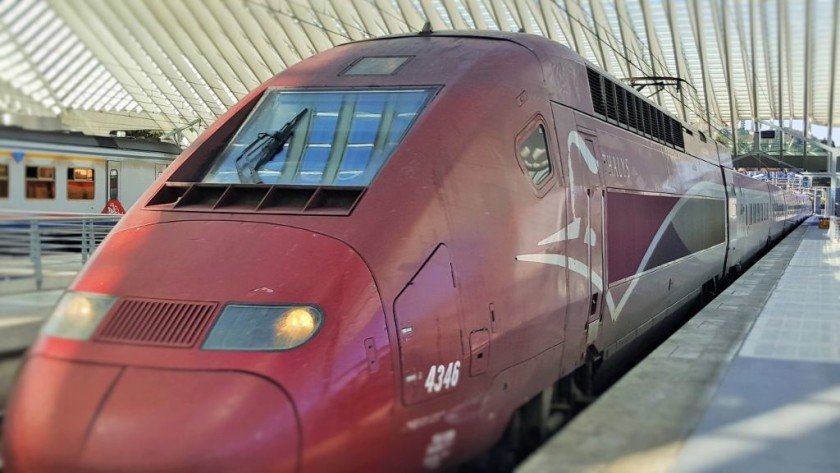
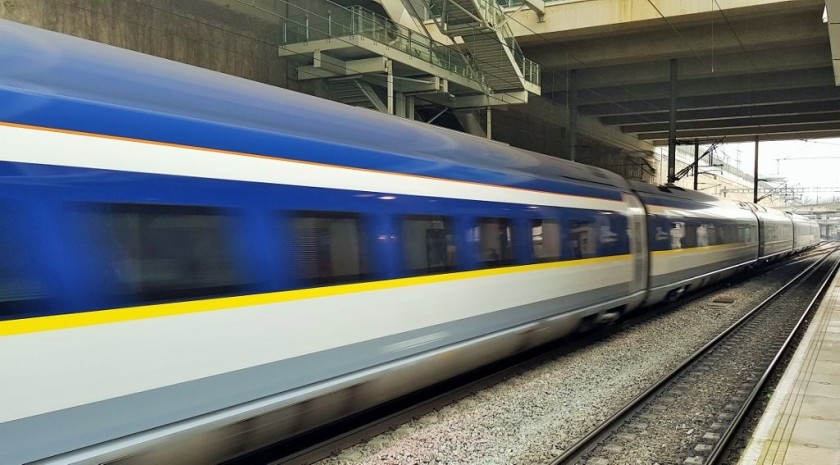
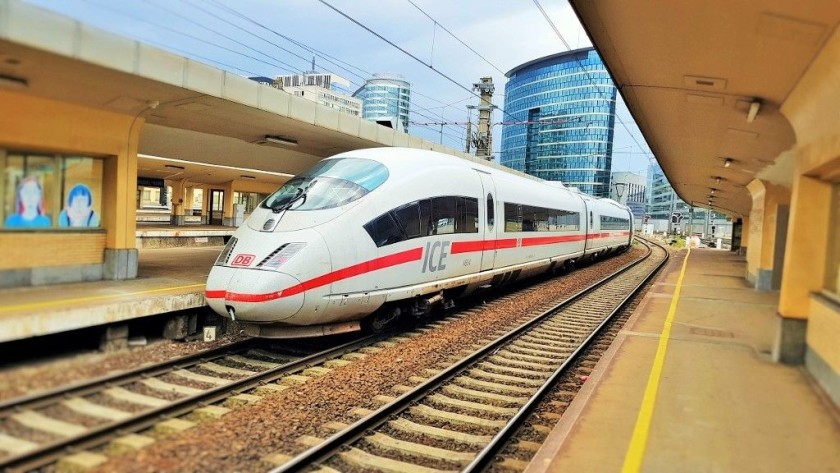
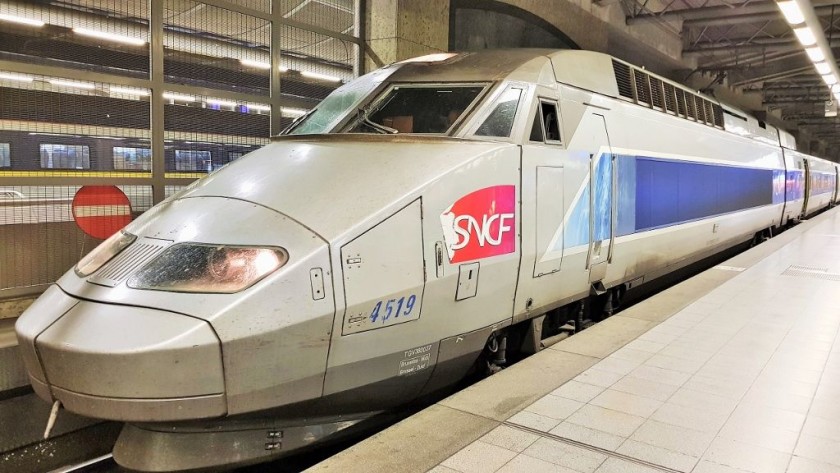
High speed trains comprise most of the international rail services from and to Belgium; pictured above are the TGVs used on the services to cities in France, the ICEs which travel to Germany; the Thalys trains which connect Belgium to Paris, Germany and The Netherlands; and a Eurostar train,
to France (and The UK):
Trains from Belgium to France primarily take one of five routes.
(1) via the LGV Nord high speed line:
Four different train services take this route:
- The Eurostar trains from Antwerpen and Liege via Bruxelles/Brussels to Paris; by far the most frequent train service from the Belgian capital to central Paris.
- Up to 2 x Thalys per day trains from Antwerpen to Marne Le Valléé (for Disneyland Paris).
These services are currently suspended. - The Eurostars from Bruxelles to London via Lille - a few trains per day also call at Calais (Frethun).
- The TGV Bruxelles/France trains which live up to their name by linking the Belgian capital to multiple cities in France other than Paris.
These trains all call at Aeroport CDG station, for Paris Charles De Gaulle airport, and Marne La Vallée station, for Disneyland Paris.
They then travel beyond these stations on various routes across France, to provide direct rail links from Bruxelles to multiple cities including: Avignon; Lyon; Marseille; Montpellier; Nimes; Strasbourg and Valence.
So if you target these trains you can avoid having to make the transfer between stations across central Paris
(2) Mouscron > Tourcoing:
Hourly Belgian IC trains travel from Kortrijk to Lille on this route and most, but not all, of these trains commence their journeys in Antwerpen and also call at Gent.
These are by far the most frequent trains from Antwerp/Antwerpen to Lille and the only trains from Gent/Ghent to Lille; easy connections are available in Gent with trains from Brugge/Bruges.
(3) via Blandain:
On Monday to Friday hourly IC trains take a Namur – Charleroi Sud – Mons – Tournai – Lille route*, but at weekends these trains only travel between Tournai and Lille.
*You may have to change trains in Tournai no matter which day of the week you will making this journey.
to Germany (and Austria):
Trains from Belgium to Germany take one of two routes.
1: the high speed line:
Two different high speed trains services travel on this line:
(1) Up to 6 x ICE trains per day follow this route: Bruxelles-Midi – Bruxelles-Nord – Liege – Aachen – Koln/Cologne – Frankfurt Flughafen/Airport – Frankfurt (Main)
Connections are available in Frankfurt (Main) on to multiple other desinations including, Dresden, Linz, Munchen/Munich, Nurnberg, Stuttgart and Wien/Vienna.
Change trains in Koln/Cologne if you'll be heading to these other cities, which have no direct trains from Belgium - Berlin, Hamburg and Hannover.
(2) Up to five Thalys trains per day take a Bruxelles-Midi – Liege – Aachen – Koln/Cologne – Dusseldorf – Essen route, with three of the trains continuing beyond Essen to Dortmund.
2: via Welkenraedt:
Hourly local trains operate on a Spa – Verviers – Welkenraedt - Aachen route .
Hourly Belgian IC trains, which connect into these trains, operate on a Oostende – Brugge – Gent – Bruxelles – Leuven – Liege – Welkenraedt route.
On Mondays, Wednesdays and Fridays a Nightjet train now travels on this route Bruxelles - Liege - Nurnberg - Linz - Wien/Vienna
This is the only direct train service from from Belgium to Austria.
to Luxembourg:
via Arlon:
Hourly Belgian IC trains take a Bruxelles – Namur – Libramont - Arlon – Luxembourg route
On Mondays – Fridays there are also hourly local trains that take a different route from Libramont to Arlon via Virton.
Gouvy >Troisvierges:
Every other hour trains travel from Liege to Luxembourg on Belgium's most scenic railway line
Connections are available in Luxembourg into trains on to Metz, so this is the optimum route for a train journey from eastern Belgium to eastern France.
to The Netherlands:
Trains from Belgium to The Netherlands follow three routes.
1: the high speed line:
Three train services travel on the high speed line from Belgium to The Netherlands:
(1) Up to 14 x Eurostar trains per day take this route: Bruxelles-Midi – Antwerpen Central – Rottterdam – Schiphol Airport – Amsterdam Centraal.
(2) Newly introduced Eurocity Direct trains which take this route:
Bruxelles-Midi – Antwerpen Central - Rotterdam - Schiphol Airport – Amsterdam Zuid - Almere Lelystad
(3) Newly introduced slower Euro City trains which take this route,
Bruxelles-Midi - Bruxelles-Central – Bruxelles Nord – Bruxelles Aeroport – Mechelen – Antwerpen Berchem – Antwerpen Central – Noorderkempen - Breda* - Rotterdam
*Connections are available in Breda into trains which travel on to Arnhem via Den Bosch, Eindhoven and Nijmegen.
2: Essen > Roosendaal
Local trains still use the older line between Belgium and The Netherlands, they depart Antwerpen Centraal hourly and head over the border to Roosendaal where further connections are available into trains to Den Bosch, to Vlissingen via Middleburg; and for IC trains to Amsterdam, which call at Dordrecht, Delft and Leiden.
On the departure screens in Antwerpen these trains may be shown as heading to Belgian border town, Essen (not to be confused with Essen in Germany).
But on arrival in Essen the same train forms the service on to Roosendaal
3: via Vise
Hourly local trains depart Liege for Maastricht, connect there for a Dutch IC train to Den Helder, which travels via Eindhoven, Den Bosch, Utrecht and Amsterdam.
Additional train travel info relevant to Belgium:
Please support ShowMeTheJourney
This second version of ShowMeTheJourney is exciting and new, so we are genuinely thrilled that you are here and reading this, but we also need your help.
We’re striving not to let anything get in the way of providing the most useful service possible, hence a facility has been set up with DonorBox which can be used to support the running costs and make improvements.
Instead of advertising or paywalls, your financial support will make a positive difference to delivering an enhanced service, as there’s a lot of ideas which we want to make happen.
So if you have found the info provided here to be useful, please go here to say thank you.
This second version of ShowMeTheJourney is exciting and new, so we are genuinely thrilled that you are here and reading this, but we also need your help.
We’re striving not to let anything get in the way of providing the most useful service possible, hence a facility has been set up with DonorBox which can be used to support the running costs and make improvements.
Instead of advertising or paywalls, your financial support will make a positive difference to delivering an enhanced service, as there’s a lot of ideas which we want to make happen.
So if you have found the info provided here to be useful, please consider saying thank you.
See if there’s a unique journey guide for your trip, featuring info on the trains, tickets & stations.

This is one of more than 100 train travel guides available on ShowMeTheJourney, which will make it easier to take the train journeys you want or need to make. As always, all images were captured on trips taken by ShowMeTheJourney.


